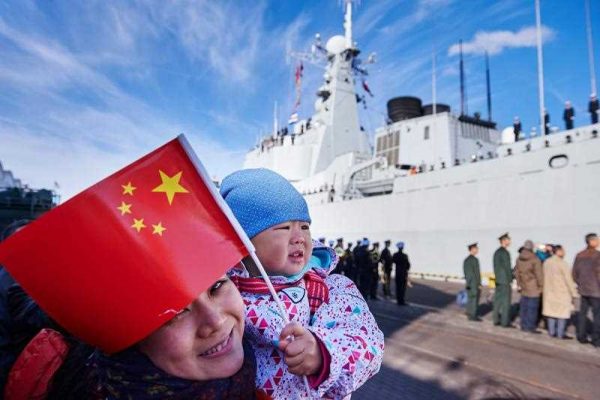The United States has pivoted to the Asia Pacific to contain China and forge security ties with regional states. The two are both involved in competing plans for Asia Pacific free trade, as well as for natural resource extraction as part of the so-called new ‘scramble for Africa’.
At the same time, China alone is driving the construction of a new economic corridor in Central Asia. Chinese President Xi Jinping’s most significant initiative — the Silk Road Economic Belt and 21st Century Maritime Silk Road — aims to link East Asian and European economies.
This has similarities to an earlier ‘imperial’ pattern. Great Britain maintained a string of fortified ports to secure the route to India (crown jewel of its empire). China is constructing bespoke port facilities in Sri Lanka, Pakistan, Djibouti and perhaps elsewhere to realise the Maritime Silk Road. In addition, China-to-Spain railway operations began last year. Recent reports have a Chinese-led consortium buying a disused Spanish airport that Chinese companies could use as a transport hub.
The repetition suggested here will make sense to international relations scholars and students. One of the discipline’s greatest theorists, Kenneth Waltz, argues that the international system has a consistent set of features that transcends time. Most important is the anarchical structure (the lack of a central authority to govern the relations between states). For Waltz, the anarchy of the international system drives competition between states and is the permissive cause of conflict.
So it may appear that China is shaping up for a new era of global imperial competition. Yet appearances can be deceiving.
Shiping Tang, professor of international relations at Fudan University, argues that the international system is evolving to the point where war is no longer something states inevitably choose to engage in under anarchy. Tang argues that as a part of human society, the international system has been evolutionary from the beginning. The evolutionary changes are endogenous — that is, they are caused from within the system. The co-evolution of agent, agents’ behaviour and system is key for understanding this transformation of the international system.
The evolution of the international system from an offensive to a defensive system was complete after World War II. The offensive system was the one the European imperialists inhabited. It was aggressive and war-prone. The gradual reduction in number of states and increase in the average size of states lead to the spreading of certain social ideas, such as that conquest was becoming more and more difficult. This learning process changed state ideas and practice, in time bringing about a defensive system.
The current defensive international system is evolving into a more institutionally rule-based system. Some offensive states still exist. Tang says proof that we live in a defensive system can be found in the decline of successful conquest and the existence of small states that would not have survived in the war-prone world inhabited by the imperial powers. States have learned that successful conquest is unlikely, that attempts will be punished, probably severely. Xi’s foreign policy can only be properly understood in light of this evolution of international politics.
China still wants power, respect, leadership roles and the voice to inject Chinese elements into international rules. Defensive does not mean passive or weak. Take for example, China’s firm line on the territorial disputes in the South China Sea and East China Sea.
Still, Xi knows China will have to struggle hard to sustain growth in the future, and that it will not be possible for China to simply free ride off of a benign international system. So despite some of the potential costs to China of an activist foreign policy, he stresses win-win relations, co-operation, harmony and the ‘Asian family’.
Xi stresses win-win relations because this is necessary for China to succeed. China is the world’s largest importer and exporter and became a net exporter of capital in 2014. It needs close co-operation with the rest of the world to increase its domestic prosperity, quality of life and level of economic development. Peaceful co-operation accords with win-win situations and Xi hopes it will also form the basis of a new type of power relationship with the United States.
Harmony and the ‘Asian family’ relate to China’s expectations for respect, influence and leadership. Xi believes that China can achieve positive results only through partnerships in which states think and work in unison, Xi believes that China has the will and ability to make deals happen internationally, and should set the tone of such relationships.
Harmony is not a mere slogan to China but a strategic concept shaping its more explicit policies on regional and global governance. The ‘Asian family’ concept also appears to involve mutual support, including China’s provision of common public goods to the region. Traditional families have a breadwinner and decision-maker, and Beijing surely expects to adopt that controlling role.
Dr Grant Dawson is an assistant professor in social science and international politics at the University of Nottingham, Ningbo, China.

